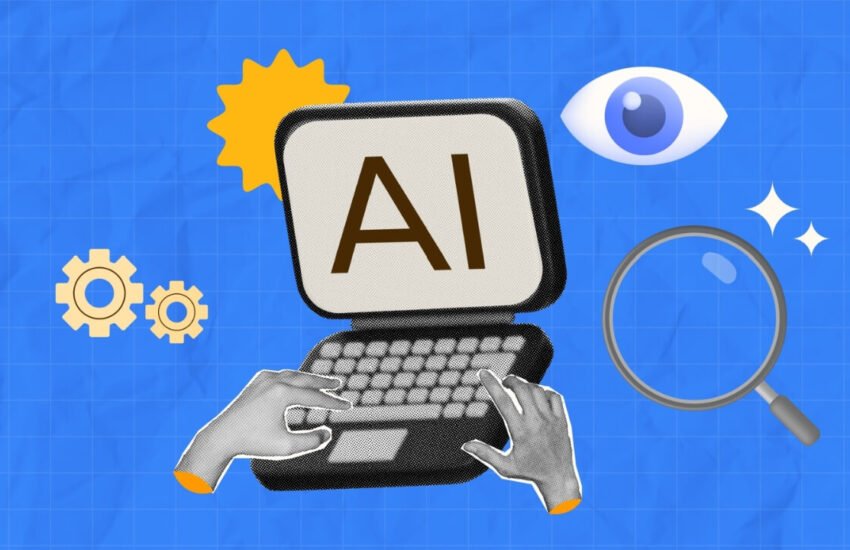The generative economy is changing so quickly and its effects on the world of digital marketing especially SEO is immense. The generative AI market is posed to hit an astonishing 1 trillion in the year 2034, marking the radical change in the way businesses will engage prospective clients on the internet. With the changes in the way search engines are becoming more and more AI-based, it can be said that those SEOs that are the first to adjust to these changes are the ones who can own the future of the digital marketing arena. In this post, we look at how AI-powered approaches to search are changing the future, why ‘traditional’ SEO is transitioning and how SEOs can take advantage of the opportunities in the generative economy.
Finding the Generative Economy
Generative economy is an economy that is driven by the power of the artificial intelligence (AI) that does not only automate the conventional processes but also produces completely new opportunities both to the business and consumer on an equal footing. As opposed to the traditional search, in the generative economy, the search engine results page (SERP) rank is not the factor of success; instead, it is a more sophisticated form of search driven by large language models (LLM) and AI algorithms.
This revolution is an alteration in the way companies and consumers relate to information. SEO, as we have been used to is no longer about optimization of ranking and keywords in the generative economy. Rather, it is centred on consumer intent, brand positioning and seeing that artificial intelligence algorithms locate and deliver relevant content to the appropriate viewers.
The one trusted trillion dollar market value by 2034 means that the generative economy is not a fad but an upheaval of how the digital marketing in future would be done.
The generative economy asks the question What Is SEO About?
SEO is traditionally based on the concept of listing based on particular words and directing customers to a site. Nevertheless, the idea of traditional SEO is starting to become ineffective as AI-based search engines continue to grow. SEOs who are eager to shift towards generative economy will succeed, whereas the ones who remain attached to the old strategies may not be able to cope.
With the world being full of AI and the usage of generative models, the main goal is not getting on Page 1 anymore. Unlike traditional search engines, large language models and other AI- powered search engines are not limited in the same way. In a matter of seconds, they are able to search through huge amounts of information in various sources and produce customized results to the user, according to the purpose and not the specific keywords.
This change implies that the SEO practitioners will have to approach the matter differently. Generative economy is all about AI-based search, which implies that the optimization of the digital content will require switching to targeting keywords and instead optimizing the brand digitally and making it relevant to digital content.
The way the Generative Economy transforms SEO
In generative economy, optimal use of keywords is no longer the main role of SEO but rather an optimization of brands location. In AI-powered search engines, the customer intent benefits more than the ranking. This alteration is an informative possibility to open up to SEOs that it is time to reconsider their technique of digital marketing.
By way of example, a company that may have historically optimized around general terms, such as “car insurance”, may now have to consider creating specific, personalized content that is capable of answering more specific questions, such as, “best car insurance as a first-time driver” or “low-cost insurance as a young driver.”
This move to AI-based search implies SEOs must change the way they design and produce content. They will be required to change their strategies that are focused on volume-based keyword practices in favor of offering quality, comprehensive and informative information that is relevant regarding what the AI requires to offer to the users.
The Presence of AI-Driven Search in the Business of the Future
The generative economy has presented to the business world tremendous opportunities to be able to attract the target audience more effectively. With AI-motorized search engines, the business can identify the customers much better and convert them more efficiently. With the help of AI that allows analyzing large amounts of data and customizing outcomes, companies can reach untapped markets and find solutions to the issues that consumers were not aware that they had.
AI search comes in particularly handy in businesses that may be interested in targeting niche markets or underserved customers. Taking an example, a firm dealing with specialized car insurance to first-time drivers will now be in a position to identify and offer its services to customers it had previously ignored due to the conventional search engines.
This change presents an opportunity to the businesses to make money through organic search, even as SEO places less importance on rankings. When SEOs start paying more attention to brand positioning and AI compatibility, they will assist businesses to gain new sources of revenue in the generative economy.
SEO vs. GEO – The New Age of Search
The generative economy has given rise to a new term GEO (Generative Engine Optimization). In contrast to tradition SEO, GEO is a business focussed approach to optimization, which revolves around positioning the business by brand and making its content searchable to AI-powered platforms. Whereas in SEO, the focus is on keywords, in GEO, we are talking about giving AI the required information concerning the unique value that a brand comprises.
To give an example, when a company provides free consultations on employment law services, then GEO would aim at providing detailed and accurate information to the AI-powered search engines about the services that the brand offers, the success stories of its clients, and the area of operations. In this manner, it will increase chances of the AI recommending the business to users seeking relevant solutions.
The main distinction between GEO and SEO is in the way the search engines appraise the content. The use of keywords is more prevalent when dealing with the traditional form of SEO whereas GEO targets positioning and content that would best serve the intent of the user.
The Future: SEO and GEO companions in productive economy
The generative economy is no death knell to SEO- it is a new era that is being developed. Although SEO will continue to be present in directing the businesses supported via traditional search, there remains the actual potential in the ambiguity by exploiting Electronic word GEO and SEO to control the AI-powered search engines.
To support the GEO in the future, SEOs will be required to implement a hybrid strategy whereby SEO conventional approaches will be combined with the newer ones that are needed to support GEO. Dubbed bothism, this strategy will enable businesses to retain their page rankings in organic search as they position themselves to face the onslaught of an artificial Intelligence-powered change in search behaviour.
Intelligent businesses will use AI-based search to develop their brands on various platforms so that they become ready to emerge in the generative economy as well as traditional search.
Conclusion: Why SEOs are positioned to dominate the Generative Economy
The transformation of the generative economy that is expected to reach $1 trillion in potential will not leave SEOs behind, but in fact, thrive. The way to succeed is to be open to new trends and realize how the AI driven search is shifting the face of the digital environment. SEOs have a distinct opportunity to drive this change scenario by making businesses ready in the generative economy, positioning themselves in the right brand and using AI to provide individuals with results that are personalized to the customer.
As using AI powered search is becoming a standard, the SEO that embraces change will have the 2020s of search. Through traditional SEO strategies and its newer counterpart, GEO, SEOs will enable businesses to make new opportunities in the generative economy as it continues to expand in value.
Search is in future AI-driven and people who adapt will shape it.
you may also like
Google On The Clear: There Is No SEO Ranking Penalty To AI-Generated Images



